Last Updated on August 5, 2021
PLOT: Set in the 1980s, a Korean family, the Yis, move to a rural farm in Arkansas and soon begin to navigate the struggles that come with trying to attain the American Dream.
REVIEW: Anyone who got a chance to read JoBlo’s Best Movies of 2020 list recently has already read my (far too brief) praises for writer/director Lee Isaac Chung’s masterful Minari, which I named the best movie of the year. If you’ve visited my Twitter feed, you’re likely to have seen me throw out a few blurbs reaffirming its pure perfection. So, now that the day has come for my full review as it’s (finally) released this week, you probably already know what to expect over the course of the next thousand words or so. And yet, what I’ve already jotted down and extended on here won’t be enough to get across how much I love this wonderful, hilarious, poignant, and heartbreaking movie. However, it’s all, hopefully, enough to get across to people that I believe it deserves to go down as one of the most important, mandatory American films of the decade.
Indeed, despite the asinine ruling of a certain popular awards organization citing it could only qualify for the “Foreign Language” section, Minari is not only an American film through and through, but also perhaps the most American movie you’re likely to see. The story of the immigrant experience is key to the story of this country, and in his semi-autobiographical film inspired by his growing up on an Arkansas farm, Chung centers on the Yi family, a Korean family who has moved to a remote plot of land to start a new chapter in their life. The patriarch is Jacob (Steven Yeun), whose idea was to move to the farm so he could grow Korean crops, and in turn, have something to be proud of; the mother is Monica (Han Ye-ri), who couldn’t be on a more opposite page than Jacob, holding it together with steadfast resilience; the children are Anne (Noel Kate Cho) and David (Alan Kim), who adapt and roll with the change after yet another move and; the grandma, Soon-ja (Youn Yuh-jung) who comes to stay with them to give Monica a sense of home and comfort, but is less about baking cookies and knitting and more about playing cards and swearing like a sailor – often with the children right next to her.
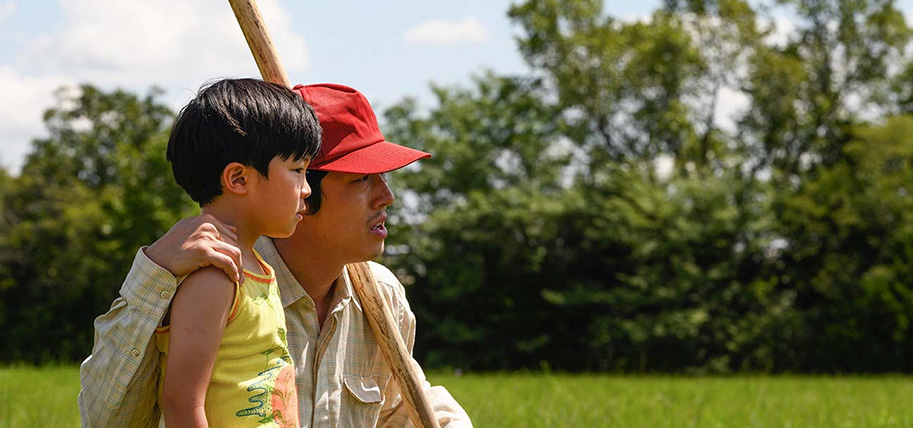
Together, Chung's reminiscent story of his childhood is all about his mother, father, grandmother and himself, painting a rich tapestry of family life that weaves all the struggles that come with them trying to make the very best out of being in a foreign, rural country. Through David's eyes (and by extension, Chung), life on the farm is almost magical. Paired with Emile Mosseri’s transcendent score, the stretches of open land seem otherworldly, boundaryless in where you can go and what you can do. David's test comes with the arrival of grandma – whom he hasn’t met until now – and views her as anything but grandma-y. Her inability to cook, love of watching wrestling, and wearing men’s underwear to bed shatters his little mind and expectations, but it's in that conflict where so much of the movie’s massive heart is.
In a stunning performance from Yuh-jung, and the best work from a young actor in the last year from Kim, Soon-ja’s creativity, playful (and sometimes ball-busting) sense of humor and non-conformity open his mind to the possibilities of the world, what it can offer, and what he’s capable of. David suffers from a heart condition, and his mother (and sometimes father) has, in a very caring way, made him avoid running and playing too hard, and instilled in him a religious outlook, encouraging him to pray of Heaven and fear Hell. But grandma says to Hell with that noise, and through his movie, Chung beautifully reimagines a pivotal figure in his life and how, with her, they formed a life-changing, symbiotic relationship. David is so playful and clever — which Kim brings to life so naturally and adorably — and meshed with Soon-ja's rebelliousness, they're pure magic.
But it’s not all wonder and humor, and as a man remembering through a child’s eyes, he recreates the turmoil that existed between mother and father in a dynamic that illustrates the emotional struggle that comes with coming to, what Monica calls, a “hillbilly place”. Jacob is happiest atop his new tractor, cigarette in his mouth, and working his land with his two hands. Where Chung succeeds so perfectly is in how he blends the admirable qualities of his father – the passion and hard work – with his faults. In wanting so much to succeed, he looks past the sadness his wife is going through. On the surface, it looks like arrogance, strictness, stubbornness, and, as seen during an early argument during a thunderstorm, pure anger.
Despite the fact they're miles away from other people, and an hour away from the nearest hospital (for David’s sake), Jacob makes them live on this middle-of-nowhere farm, all so he can live the American dream. In painting a complex portrait, Chung honestly examines this vision of his father, a man who can be seen both as selfish, and as simply wanting to achieve the very best for his family, coming from hardship in Korea and aimlessness in California. Yeun does the best work of his career to date in a towering performance of a hopeful man who sees a land of possibility. Yeun seamlessly weaves between a loving father who cares deeply about the welfare of his family, and the stern, defensive disciplinarian with a chip on his shoulder that mostly steers him clear of embracing compassion and makes him angry in confrontations. His work can warm your heart, like in moments with David in the field, or shake you to your foundation when he’s pushed. From start to finish, he’s never not compelling.
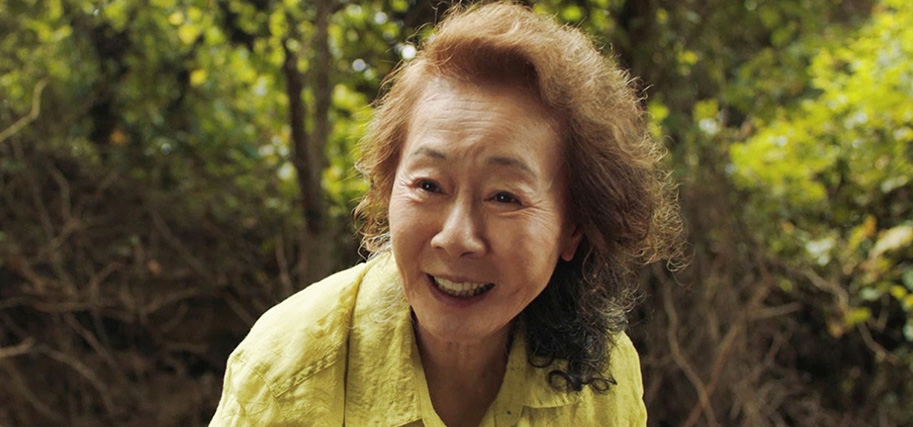
Given equal examination, in Chung’s mother we see Monica as a woman who is instantly repelled by their new home – so far from everything and living in a house on wheels. She misses the city and fears for the day her son falls ill, and they’re too far from the hospital to get there in time. She sacrificed a lot following her husband and his dream, containing so much of her sadness in trying to keep a brave face for her family. While her husband plows the field and crafts his farm, she can exist in total silence, all before letting it go in emotional moments, like when Soon-ja brings spices and food from Korea. But Chung makes sure to paint her as a fighter, too. When she opens up she doesn’t hold back from Jacob. In looking at their marriage, Chung recreates it from memory, not perhaps knowing the full extent of their troubles, but clearly with a vividness for the silent tension between them. Yeun and Ye-ri are a tour-de-force together, making the quiet moments hit as hard as the loud ones, and thanks to Chung’s introspective direction, leads to a heart-wrenching moment between them in the film’s final minutes, with Ye-ri offering some of the best delivery of the whole movie.
Between the ebbs and flows in the script, Chung too is a master behind the camera. He crafts the moments on the farm and in the creek on the edge of the property with such fondness, working with cinematographer Lachlan Milne to make the landscape seem magical and poetic. The natural light makes the land appear lush and vibrant, giving this tale of rural life a transporting sense of majesty. None of that would have felt as intoxicating without one of the year’s very best scores from Mosseri, which blends gentle guitar, synth sounds and soft orchestrations to inject wonder and warmth into some of the most unforgettable moments. Tonally, Chung blends the hardship with love and humor in equal measure, ensuring that even in the darkest moments there’s a plentiful amount of hope. Here’s an autobiographical tale made with fond remembrance and insightful honesty, neither glamorizing nor insulting these formative years.
Minari pairs nicely with another 2020 film, Nomadland, as like director Chloe Zhao did with the vastness of the rural Midwest, Chung captures the poetry in the seemingly endless sea of green that is an often-forgotten slice of the American landscape. The portrait of this family is brought to life with reverence for both the good times and the bad, making it an unforgettable, awe-inspiring glimpse into the American heartland and the kind of family that defines it. The story of the Yi family is the same story of millions of families across this country over the generations, battling hardships and each other in the name of building the best life possible. But for all the pain brewing under the surface, ready to erupt, there is also a tremendous amount of love and wonder, all of which is brought to life by Chung’s ability to keep a foothold in both his youth and reflective adulthood. There’s a point in the movie when Soon-ja and David stumble upon a batch of the plant Minari in the woods, at which grandma, with great joy, says how what makes this plant so special is its ability to grow anywhere, and be apart of anything, belonging and flourishing wherever it may grow. It’s in that speech where Chung’s point shines brightest.


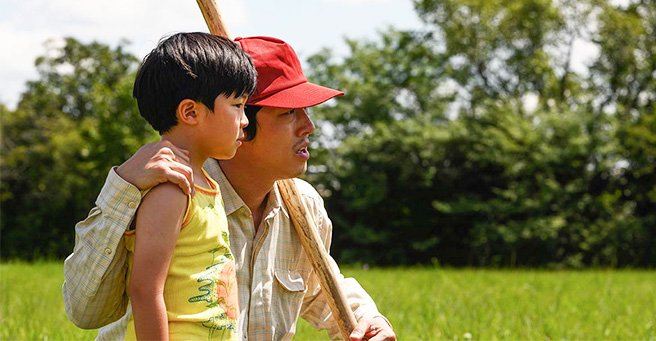






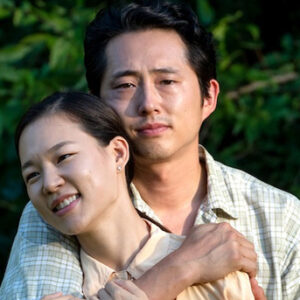
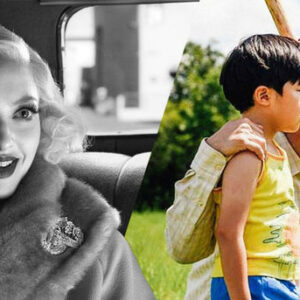





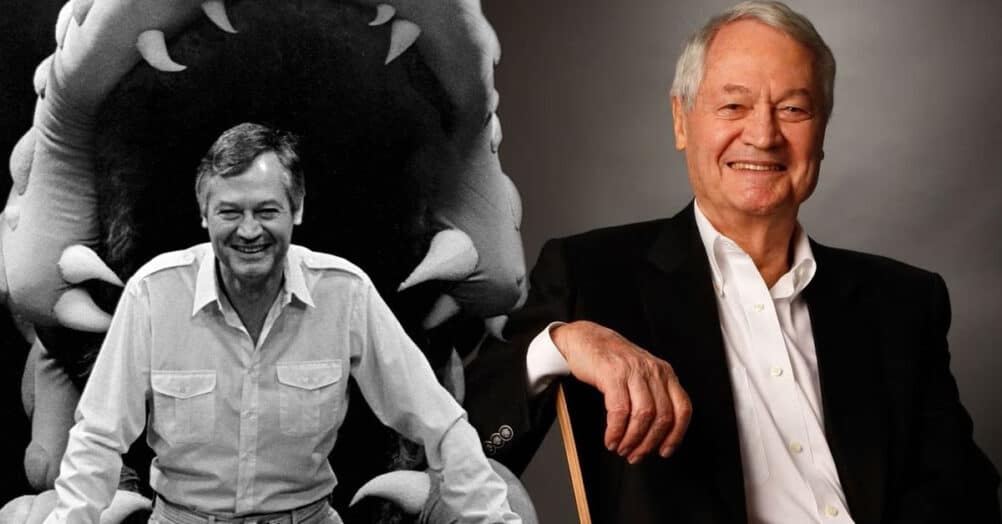



Follow the JOBLO MOVIE NETWORK
Follow us on YOUTUBE
Follow ARROW IN THE HEAD
Follow AITH on YOUTUBE